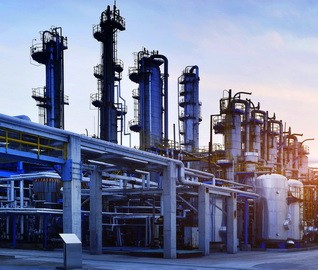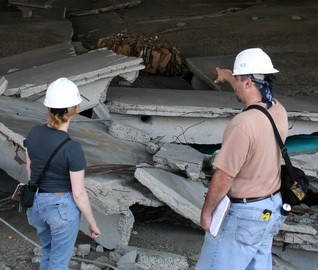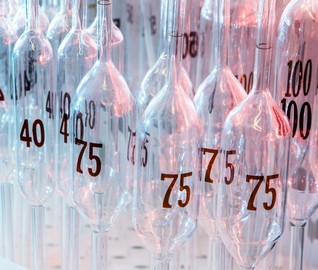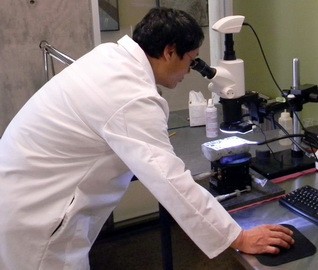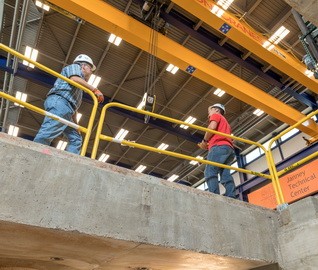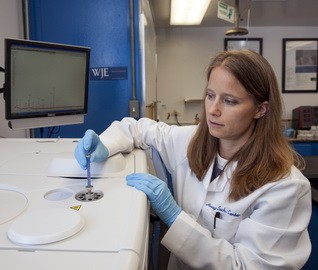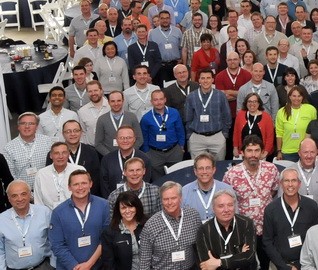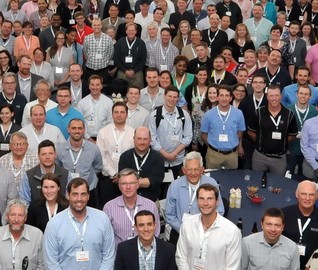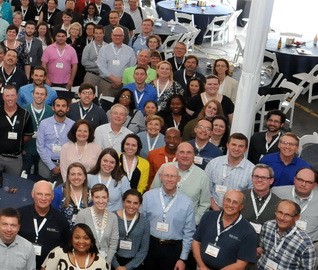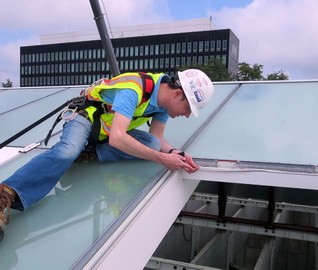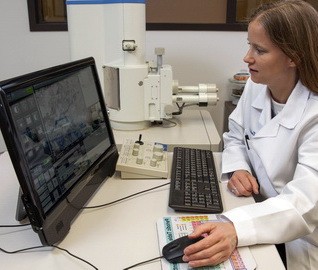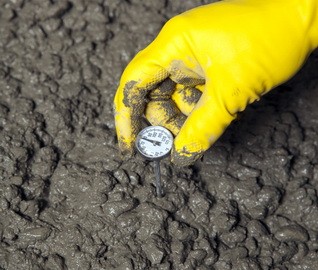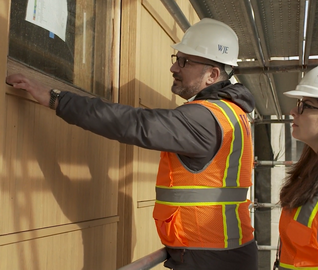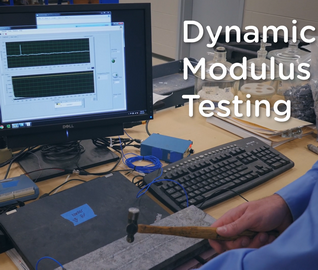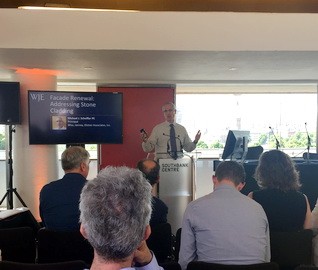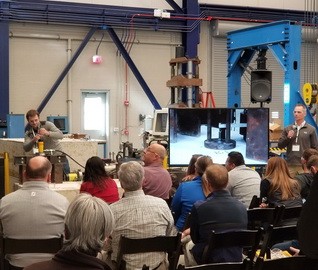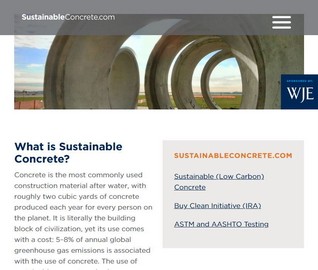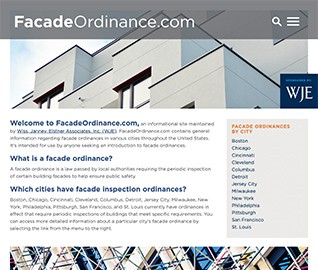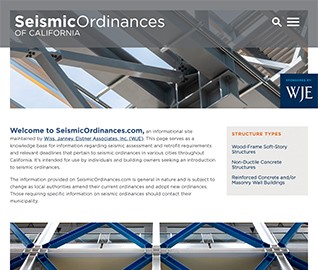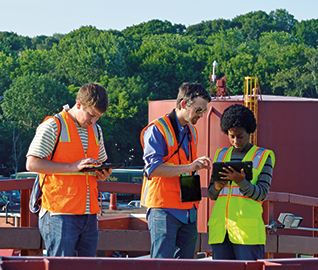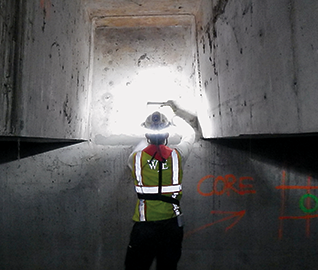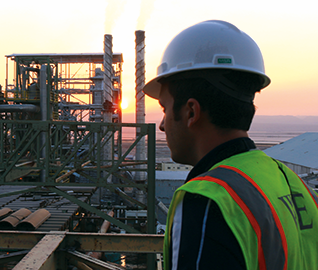The amount of acid-soluble chloride in most hydraulic-cement systems is equal to the total amount of chloride in the system. However, some organic substances that may be introduced into mortar or concrete contain chloride that is initially acid-insoluble that can eventually ionize and thus become acid-soluble or water-soluble after a period of exposure in the very alkaline cement system. Sulfides are known to interfere with the determination of chloride content. Blast-furnace slag aggregates and cements contain sulfide sulfur in concentrations that can cause such interference and produce erroneously high test results. Treatment with hydrogen peroxide is used to eliminate such interference. There are aggregates that contain chloride that is not available for corrosion. Such chloride will be detected by the use of this method.
WJE laboratories are accredited by AASHTO (R18) and ANAB (ISO/IEC 17025) to perform testing standard ASTM C1152 for Acid-Soluble Chloride in Mortar and Concrete.
Contact us to learn more.
Keywords
ASTM C1152 - Chloride Content - Concrete - Hydraulic Cement - Inorganic Matter Content - Mortars
ICS CODE
91.100.10 (Cement. Gypsum. Lime. Mortar.); 91.100.30 (Concrete and concrete products)
UNSPSC CODE
30111504 (Mortars); 30111500 (Concrete and mortars)
CITATION FORMAT
ASTM C1152 / C1152M-04(2012)e1, Standard Test Method for Acid-Soluble Chloride in Mortar and Concrete, ASTM International, West Conshohocken, PA, 2012,
www.astm.org
 John E. Pearson, Principal and Laboratory ManagerWJE Northbrook MORE >People | John E. Pearson, Principal and Laboratory Manager
John E. Pearson, Principal and Laboratory ManagerWJE Northbrook MORE >People | John E. Pearson, Principal and Laboratory Manager WJE's Janney Technical Center (JTC) provides advanced testing and forensic capabilities to... MORE >Labs | Janney Technical Center
WJE's Janney Technical Center (JTC) provides advanced testing and forensic capabilities to... MORE >Labs | Janney Technical Center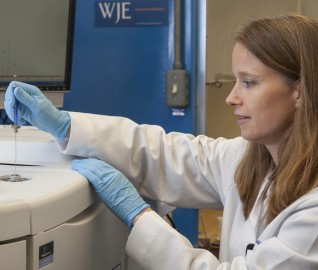 Our materials scientists provide comprehensive consulting services for the evaluation and... MORE >Services | Materials Evaluation and Testing
Our materials scientists provide comprehensive consulting services for the evaluation and... MORE >Services | Materials Evaluation and Testing WJE was founded on a spirit of innovation—that everything can be improved and that... MORE >Services | Product Development, Evaluation, and Testing
WJE was founded on a spirit of innovation—that everything can be improved and that... MORE >Services | Product Development, Evaluation, and Testing

